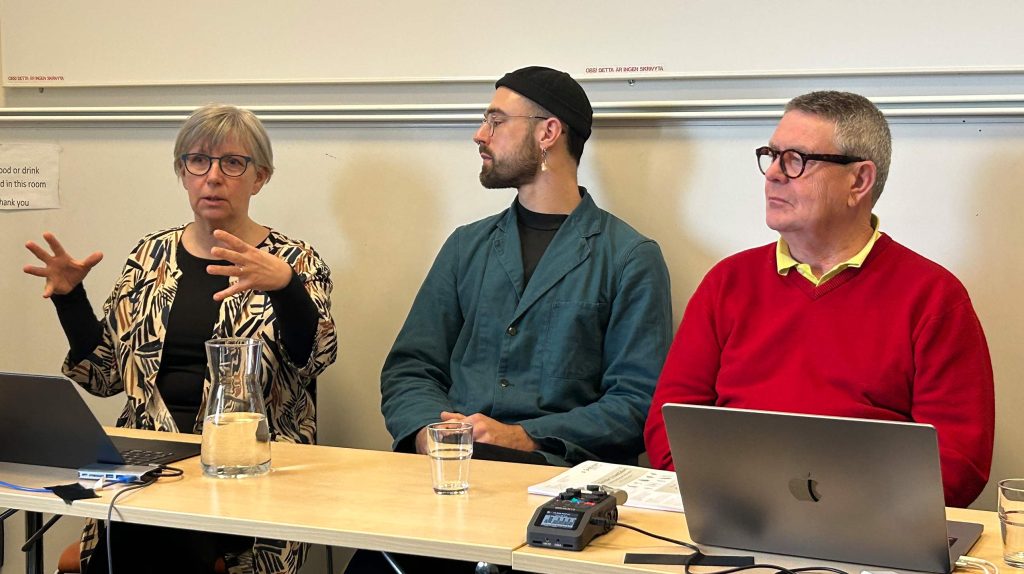What changes are needed in agriculture and society to ensure sustainable food production? And what is the connection to soil health? This was the focus of a discussion among researchers, farmers, and students held on 13 February at Lund University.

Today’s large-scale farming practices are depleting our valuable topsoil, disrupting delicate ecosystems, and ultimately threatening our future food supply. Agriculture needs to undergo transformation, but what does that actually look like in practice? And what role can different stakeholders in the food system play in supporting this transition?
These and other critical questions were explored by Mark Brady, Associate Professor of Natural Resource and Environmental Economics at the Centre for Environmental and Climate Science (CEC) at Lund University; Gunilla Andersson from Malmö City; Leon Pepe Biundo, Production Manager at Alnarp Farm; and Håkan Rasmusson, an organic farmer at Värpinge gård. The panel discussion took place on Thursday 13 February at the Centre for Sustainability Studies at Lund University.
“The level of external interest has been unusually high, which is incredibly encouraging. It shows just how deeply people care about these important issues.”
The LOESS project sparks engagement
The discussion was moderated by Johan Sparf and is part of the EU-funded LOESS project, which aims to raise public awareness and understanding of soil health. Maria Jacobson, Project Manager at Public & Science Sweden, expressed her satisfaction with the event, the third and final discussion in a series on soil health.
”As part of LOESS, we have organised discussions on soil as a carbon sink, on conflicts over land use, and now a final discussion on soil health and sustainable food production. The level of external interest has been unusually high, which is incredibly encouraging. It shows just how deeply people care about these important issues.”
The panel discussion was recorded and available to watch in Swedish. This was the last of three panel discussions in a series on soil health. Read about the first and second panel discussions.
